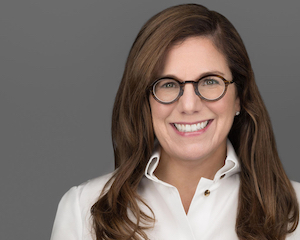By Amy Schabacker Dufrane
February is Black History Month, an annual observance that aims to pay tribute to generations of African Americans and their contributions to education, the arts, government and history. Recognizing the impact and accomplishments of changemakers such as abolitionist Harriet Tubman, civil rights leader and politician John Lewis, activist Rosa Parks and Dr. Martin Luther King, Jr., this focus portends to acknowledge those who struggled with adversity to achieve full citizenship in American society.
Black History Month began as a week-long celebration, created by a noted Black historian named Carter G. Woodson. It was expanded to a month in 1976 by President Gerald Ford.
But keeping a concentrated spotlight on Black History Month has been challenging as of late. Recent racially charged tragedies evoke painful memories of disparities and injustices that run deep. It feels like no matter how far we come, there’s still a great deal of room for improvement, especially as some organizations have started to pull back on their commitment to diversity, equity and inclusion.
Black History Month represents an opportunity for HR professionals. As an integral part of DEI programs, Black History Month is rife with teachable moments that can reinforce why it’s so important to nurture a culture of belonging in the workplace. Among the ways that organizations can showcase Black History Month in the workplace are:
- Start by learning about Black history. Assuming that all workers have the same experiences in school and the workplace creates unconscious bias from the start. Creating a culture of empathy and inclusion requires foundational understanding of why this is so important and what the inequities are. For example, bring in speakers and create a safe space for people to listen and share. Honor your own employees’ stories by inviting them to share their experiences.
- Support (or start) a Black Employee Resource Group that looks at the diaspora of the Black experience while promoting DE&I. Encourage participation; however, do not make judgments and assume that all Black employees automatically want to partake. Respect the needs of individuals and tailor the program to accommodate remote and hybrid work structures. Consider adding a Slack channel that promotes conversation.
- Put your money where it matters. So many companies put the first two suggestions in place and sit back. Take it to the next level by getting involved with external organizations such as Black Girls Code, 100 Black Men of America, and RaceForward. Give employees a volunteer day to help make a difference. Train the trainers through formal racial equity training and conduct in-house workshops, physically and virtually. Go deep in order to create actionable programs that will increase positive outcomes.
- Identify the areas for improvement and measure DE&I effectiveness. That doesn’t stop after one month on the calendar. Get employee feedback by using pulse surveys to ascertain if awareness and training are making a positive difference. Look at your hiring practices: What percentage of new hires are Black? Are Black employees in certain states struggling because of politically motivated bans on African American studies? In other words, is Black History Month merely a “hallmark” style holiday on your HR calendar? Or are you ready to really push on and poke into the systematic problems that need to be resolved?
A recent report by Littler on inclusion, equity and diversity found that while 32% of the surveyed executives think their organization has clear DEI plans and goals in place, 67% are less certain. Nearby to HRCI’s offices, the Dr. Martin Luther King, Jr. Memorial stands prominently in our nation’s capital. Instrumental in advancing the fundamentals of civil rights in America, he sought to promote peace and universal brotherhood. He also saw doing nothing as the greatest obstacle to resolving racial injustices and urged all of us to “pull our pound.” HR professionals are well positioned to advance fairness and meaningful change, year-round. Black History Month represents a great starting point.

